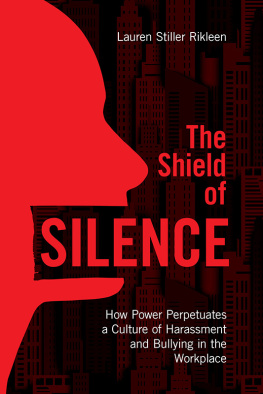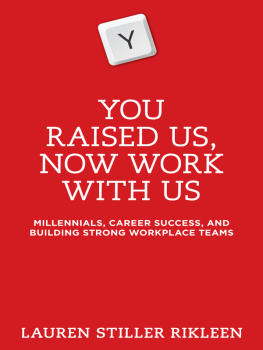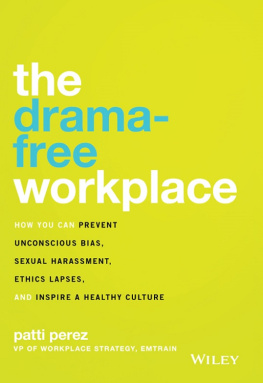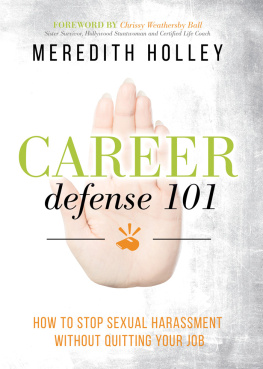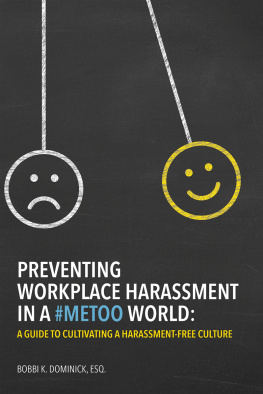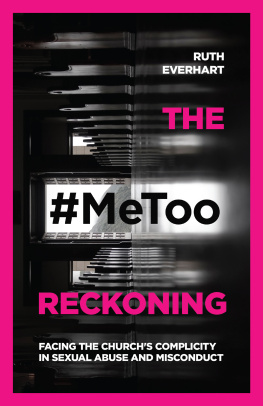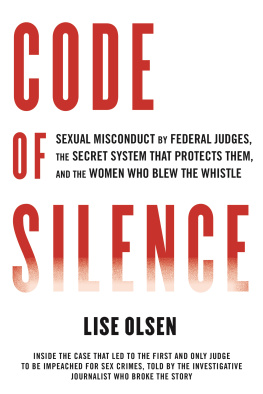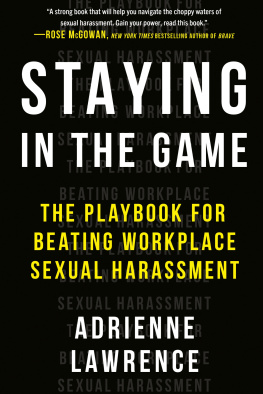Contents



The materials contained herein represent the opinions of the authors and/or the editors, and should not be construed to be the views or opinions of the law firms or companies with whom such persons are in partnership with, associated with, or employed by, nor of the American Bar Association unless adopted pursuant to the bylaws of the Association.
Nothing contained in this book is to be considered as the rendering of legal advice for specific cases, and readers are responsible for obtaining such advice from their own legal counsel. This book is intended for educational and informational purposes only.
2019 American Bar Association. All rights reserved.
No part of this publication may be reproduced, stored in a retrieval system, or transmitted in any form or by any means, electronic, mechanical, photocopying, recording, or otherwise, without the prior written permission of the publisher. For permission contact the ABA Copyrights & Contracts Department, .
Printed in the United States of America.
23 22 21 20 19 5 4 3 2 1
ISBN: 978-1-64105-407-2
Library of Congress Cataloging-in-Publication Data
Names: Rikleen, Lauren Stiller, author.
Title: The shield of silence : how power perpetuates a culture of harassment and bullying in the workplace / Lauren Stiller Rikleen.
Description: Chicago, Illinois : American Bar Association, [2019] | Includes index.
Identifiers: LCCN 2019006069 (print) | LCCN 2019008807 (ebook) | ISBN 9781641054089 (epub) | ISBN 9781641054072 (hardcover)
Subjects: LCSH: Sexual harassmentUnited States. | Sexual harassmentLaw and legislationUnited States. | Bullying in the workplaceUnited States. | Discrimination in employmentUnited States.
Classification: LCC HD6060.5.U5 (ebook) | LCC HD6060.5.U5 R55 2019 (print) | DDC 302.3/5dc23
LC record available at https://lccn.loc.gov/2019006069
Discounts are available for books ordered in bulk. Special consideration is given to state bars, CLE programs, and other bar-related organizations. Inquire at Book Publishing, ABA Publishing, American Bar Association, 321 N. Clark Street, Chicago, Illinois 60654-7598.
www.shopABA.org
This book is dedicated to those who, for far too long, have suffered in silence because they rightfully feared their reports of misconduct would not be believed or acted upon. I hope this book will contribute to a change in workplace culture, shifting power away from perpetrators and encouraging those who have experienced or witnessed workplace misconduct to end their silence.
Acknowledgments
This book has its roots in a study that was sponsored by the Womens Bar Association of Massachusetts (WBA). In early 2018, I had the special opportunity to be retained by the WBA to assist with a project to analyze the prevalence of harassment and other negative behaviors in Massachusetts law firms. The survey included a series of questions to determine whether the respondents had experienced certain behaviors. For each question answered affirmatively, the respondent was asked whether the incident had been reported. Those who did not report the behavior were asked why. The survey also provided an opportunity for the respondents to provide anecdotes.
In both analyzing the responses and writing the report, I was struck by the silence. For every question, the majority of the incidents went unreported. Yet so many of the anecdotes that were shared were haunting, demonstrating an overwhelming fear of retribution for speaking up, and a failure in so many of the firms to have an appropriate process in place to ensure misconduct could be reported without retaliation. Many of the respondents stated that the perpetrator was a senior person at the firm and the one to whom a report would have to be made.
Once the report for the WBA was completed, I continued to research other examples of workplace sexual harassment and misconduct, as well as the underlying reasons for silence in the face of such negative behaviors. Social science research provided a range of fascinating studies that helped shed light not only on the potential causes of the negative behaviors, but also on ways to bring about change. I also spoke with scores of individuals who shared stories about their own difficult experiences.
This book is an effort to bring together the research, the conversations, and proposed strategies for change in a way that is designed to be accessible and helpful to anyone who is committed to creating a safe, respectful, and inclusive workplace culture. Cultural change is required if we are ever to create the conditions that will end the misconduct as well as the silence.
I am grateful to the Womens Bar Association of Massachusetts for the opportunity to work with them on their groundbreaking survey, and for the support they have given me since. A special thanks is owed to the WBA president, and now friend, Meredith Ainbinder, and to the WBAs indomitable executive director, Margaret Talmers. Thanks, also, to the co-chairs of the WBA Law Firm Advancement Committee, who dedicated their time to ensuring this projects success: Jody Newman, Sarah Gagan, and Heather Gamache. Finally, a special thank you to the two initial cheerleaders for this project who helped move it forward from the days when it was an unstructured idea: former WBA president, Michele Liu Baillie, and the former WBA executive director, Pattye Comfort.
Two talented Boston College students supportive of this book helped obtain background research and provided a major assist with putting the endnotes into proper citation formatSarah Mandelblatt and Meg Dolan. They are wonderful examples of BC women who will no doubt make a difference in the world. I am truly grateful for their help and their commitment to this project.
As the manuscript neared completion, I asked two people to review a draft and provide edits and comments. Both were extraordinarily helpful and I am so appreciative of their time. Mel Stiller went above and beyond the responsibilities of being my typically wonderful big brother by spending so much time and careful attention to detail. His edits were incredibly helpful. Rebecca Pontikes lent her skills as a lawyer specializing in this field to review the manuscript and made a number of thoughtful suggestions. I am grateful for her time and assistance.
I am also grateful to the publishing folks at the American Bar Association for their commitment to this book and their belief in its importance. A special thank you to Bryan Kay for going above and beyond, as well as to the editor, John Palmer, for his support.
Every project of mine bears the incredibly helpful fingerprints of my husband, Sander, whose support is far from abstract. His brilliant eye for detail provides the polish to all of my writing projects and his legendary flexibility has been the backbone of our family.
I am grateful as well to our children, Alex and Ilyse, for their special role in our lives, and feel so fortunate to now have in the family their respective spouses, Leslie and Sam. We are all fortunate for the legacy of love and support that has been passed down from my parents, Elaine and Joe Stiller, and Sanders parents, Rebecca and Alexander Rikleen.
Being part of a loving extended family makes the process of writing a bookand everything elsemuch easier. My thanks and love to each of you.

